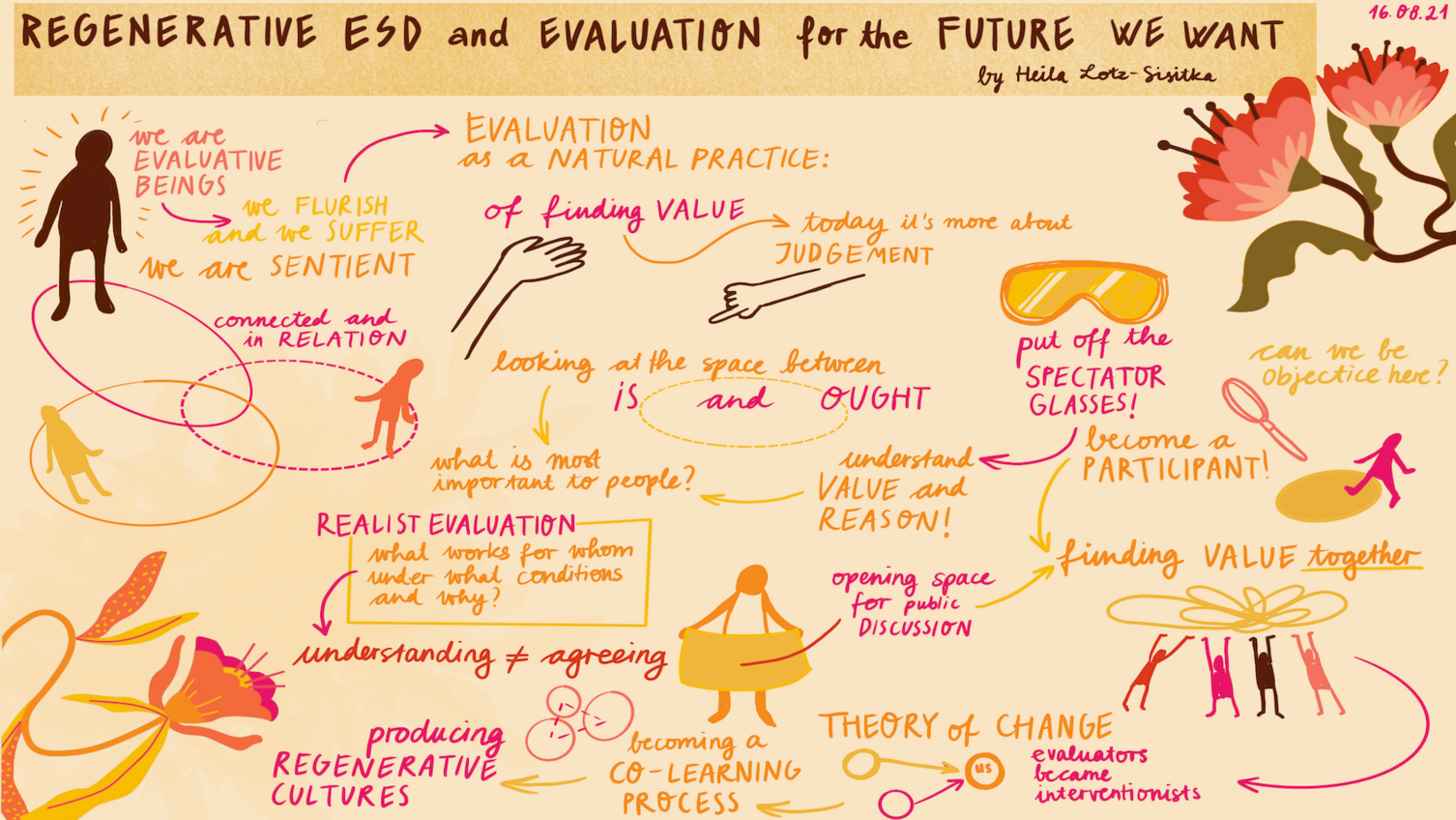Summer School: “Regenerative Education for Sustainable Development”
2021-08-30 This August from 16th to 20th, the Institute for Sustainable Development and Learning (ISDL), a central cross-faculty institute at Leuphana hosted a summer school on “Regenerative ESD and Evaluation for the Future We Want”. Participants from all over the world met online to listen to keynotes, and co-engage on how to implement effective ESD evaluation and develop ESD Evaluation proposals aimed at building critical understanding of seeing evaluation as a sustainability learning process.
Some got up early in the morning at 5 am, others stayed up until late at night to attend the international summer school which had participants from eight different countries and different time zones. This required special preparation and flexibility to accommodate all participants. Participants were logging in from India, Switzerland, Germany, Kenya, South Africa, Ireland, South Korea, Chile and Mexico, all coming together in one Zoom room to discuss Evaluation and Education for Sustainable Development.
“Our society is facing many challenges all over the world right now that highlight the importance of education for sustainable development and with this summer school we are trying to empower and learn together with change agents to conceptualize evaluation as integral to sustainability learning”, says Matthias Barth, Professor of Education for Sustainable Development, at the Opening of the Summer School. The summer school supported the main goal of ISDL which is to foster sustainability learning on all three levels – individually, as a group and as a society. It represented ISDL’s contribution to the Sustainable Development Goals (SDG 4.7) and the recently launched ESD for 2030 framework and roadmap. Organized in partnership with Eberswalde University for Sustainable Development, Engagement Global, Rhodes University and Veracruzana University, the summer school was preceded by an online learning phase of three weeks where the participants developed understanding of core concepts in blended learning formats.
“How do we put people on the same level of understanding when they come from very different backgrounds? How do we implement a language comprehensible for everybody and use it productively to unfold its potential?” The critical questions and concerns posed by the participants in the opening session demonstrate that building common understanding is key to evaluation and learning processes, especially when working with people from diverse backgrounds. This was also highlighted in the first keynote by Distinguished Professor Heila Lotz -Sisitka from Rhodes University, South Africa, who talked about “evaluative being(s) and becoming(s)”. She explained that evaluation is a form of ‘finding value’, especially within matters of concern in our lives and practices in the company of others: “The difficulty with evaluation processes is to make evaluative judgements about or for others, mostly without “knowing” them. This is one of the concerns that drive the Realist valuation method, it emphasizes the necessity to see the context of each person and situation -What works for whom under what conditions and why?” There can be a gap between an observation and a person’s self-impression. Therefore, it is necessary to put down the “spectator’s glasses” as Heila Lotz-Sisitka puts it: “Sometimes a woman is being oppressed, even though she might deny it. Evaluating is about bringing in different perspectives. It opens up a space for public discussion about the values of well-being. This is what ethics, values and sustainability principles are about: How people relate to each other and the environment in terms of their own and the environment’s well-being. When we evaluate to find value together, we are thinking about how to act.”
It is safe to say that the summer school reached its goal in connecting people: "It is good to know that we are not alone – everyone has similar problems and it is easier to solve them together. We connected a network of global friends and will stay in touch says Nicholas Mwaura Kinyanjui from Kenya, one of the participants on the course." The first summer school of ISDL dealt with conversations on decolonizing education and evaluation, harnessing human wisdom to unlearn and learn, and building skills on communicating ESD Evaluation.

